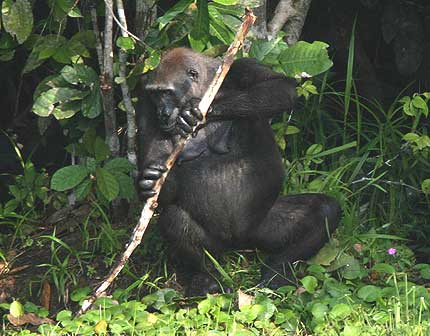
Climate change is endangering the lives of the Great apes in more than one way. First, the rise in temperature levels will definitely have an impact on the animal. Secondly, the switch over to biofuels could result in further destruction of the animals’ habitats, according to a leading conservationist, Dr Richard Leakey.
Leakey warns that the animal is facing an inevitable crisis,
Climate change will undoubtedly impact everything we know. The implications for biodiversity are there for all to see.
The chair of WildlifeDirect called for immediate action and proposed financial incentives to save forests from destruction as one possible solution.
The Great Apes Survival Project (Grasp), a United Nations Environment Programme (UNEP) initiative, has warned that great apesm, gorillas, chimps, bonobos and orangutans are at risk of imminent extinction unless drastic action is taken.
Other reasons for the ever-decreasing numbers of the animal population are, habitat destruction, poaching, logging and disease.
Dr Leakey, the former director of the Kenyan Wildlife Service, further adds,
I am concerned about the pressures on the land as a result of changes to the climate, but also the pressures on the land in terms of people’s reaction to climate change and the shift away from fossil fuels to biofuels. Climate change is measurable and is happening at rate that is almost unprecedented from what we know in previous history, and the implications for biodiversity are there for all to see.
Great swathes of forest have already been damaged in South Asia to make way for palm oil plantations, and this had a dramatic impact on orangutans, which currently number 50,000. Palm oil has been proposed as an alternative to fossil fuel.
Dr Leakey, a prominent conservationist in Kenya, suggests “biodiversity credits” could to a possible solution.
Being paid for not cutting down indigenous forests and getting credit for that is a further step that builds on the idea of getting paid for planting new forests. It does seem that we cannot stop development, but it does also seem that perhaps we can stop development where critical species are threatened, and perhaps there could be a price added to that.
Dr. Leakey’s parents, Louis and Mary Leakey, were prominent paleontologists, finding and excavating key sites around Africa.
Image
Via:BBC

